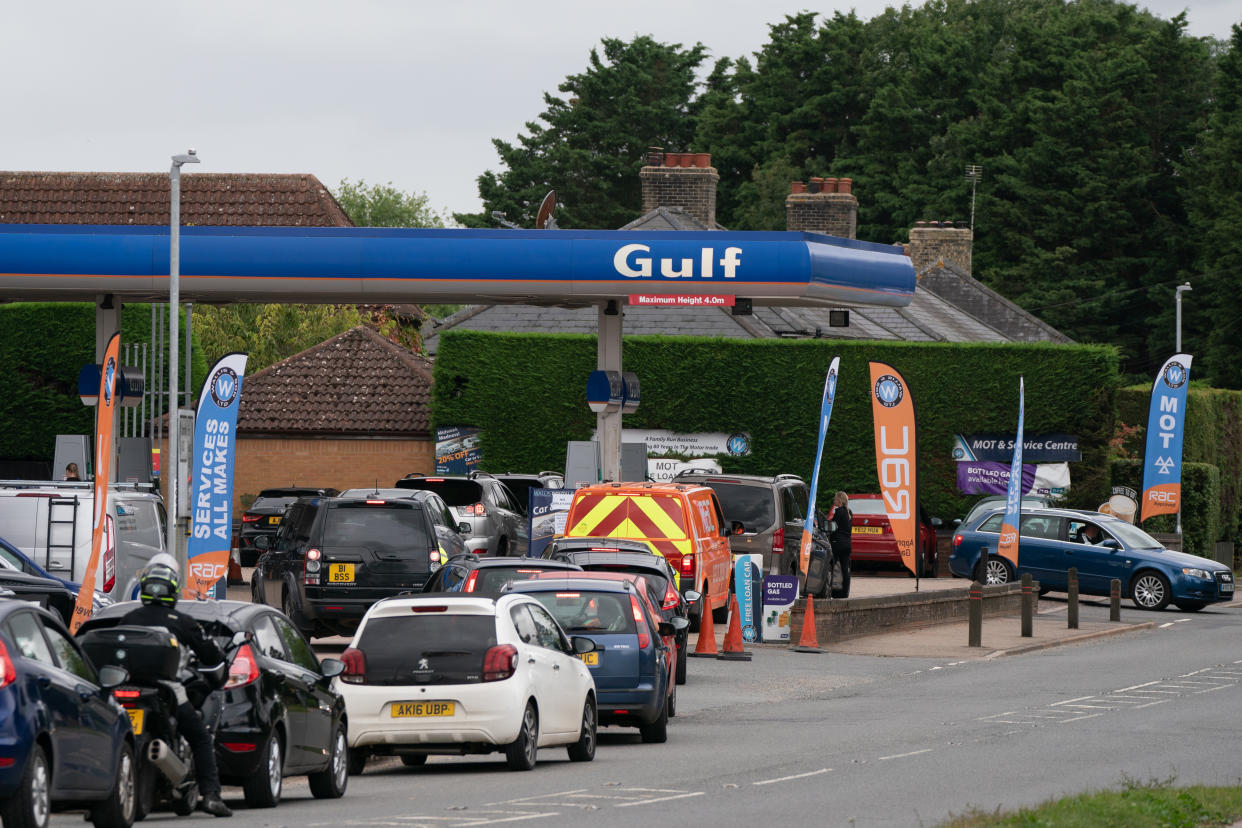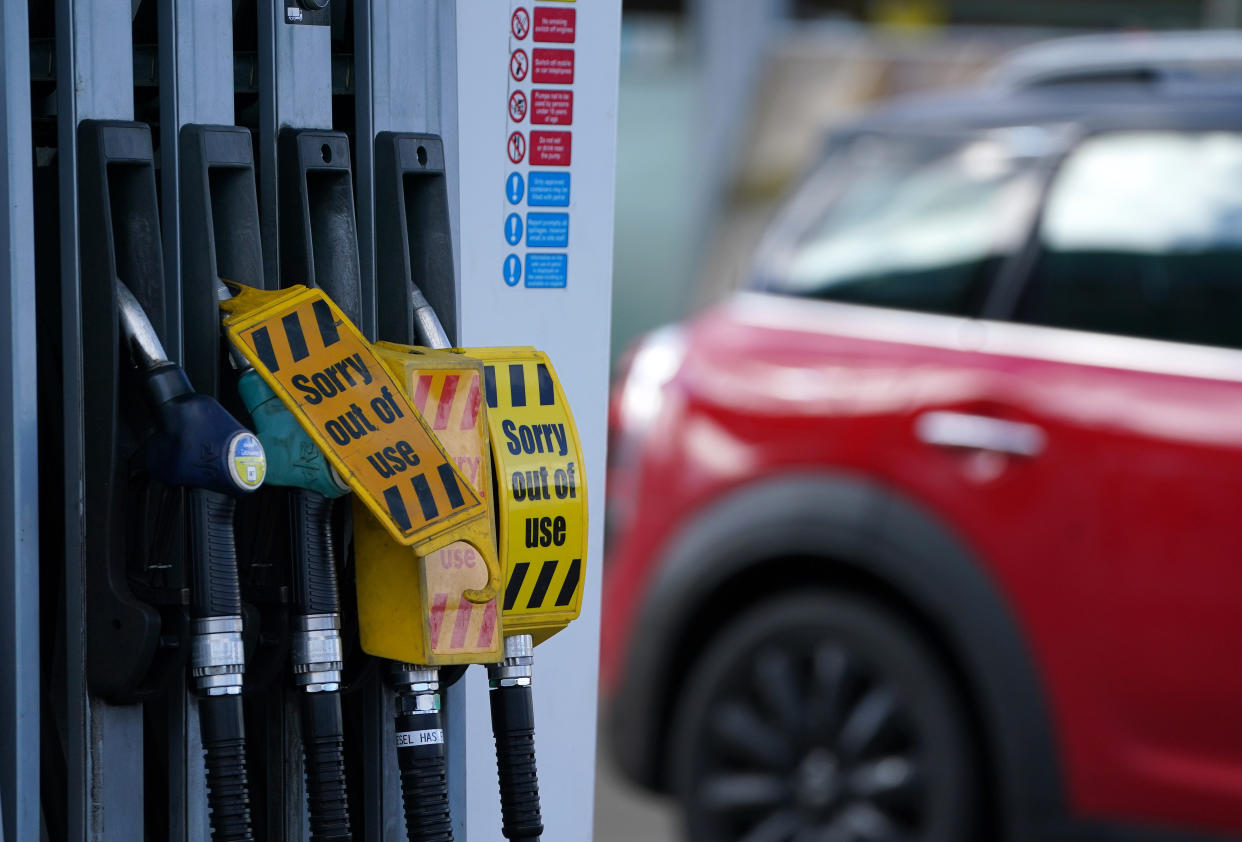'Put bluntly, he would die': Carer with seriously ill husband pleads with petrol panic-buyers to stop
A carer struggling to get her seriously ill husband to critical hospital appointments has expressed her frustration and fear over the fuel crisis that has gripped Britain.
Caroline Skeets, who lives in Horsham, West Sussex, said she had not been able to get fuel from any nearby petrol stations and couldn't rely on friends to transport her husband due to Covid.
She told the BBC's 'You and Yours' programme: "If I don't get him to his chemotherapy appointments and his blood transfusions, which he [has] each week, then to put it bluntly he would die – I mean, it's as simple as that."
Retired nurse Skeets, who cares full-time for her husband, said she had enough fuel to get him to his next two appointments.
Read more: Blood supply runs to hospitals hit by ‘frustrating’ fuel crisis, charity warns

She added: "From my point of view it's extremely frightening."
She said the second appointment is six hours long and that she fears she might have to spend the whole time sat in the car rather than going back home while she waited due to the difficulty of getting petrol.
There have been scenes across the country over the past few days of people piling in to petrol stations after fears were sparked of a fuel shortage.
The government and fuel companies have denied there is a shortage of fuel, saying the only issue is a lack of HGV drivers available to transport fuel from the refineries to petrol stations.
Read more: Ministers deny Johnson too slow to act as fuel crisis continues

When asked what she thought the government should do, Skeets said: "If anybody says to you, as the government did, 'don't panic,' well you do, you do the opposite, because why mention the word 'panic' if there isn't a panic?"
Skeets said her husband's suppressed immune system meant they have had to reject offers of help from friends and family – and also ruled out the possibility of getting a taxi or public transport.
Skeets said her husband had only recently got out of hospital after recovering from an infection.
Watch: Shapps: Signs of stabilisation in fuel crisis
She said she was doing on average 200 miles a week purely on hospital trips.
The government announced on Monday it was putting troops on standby to drive petrol tankers as filling stations in many parts of the country continued to run dry.
Transport secretary Grant Shapps said it was the 18th separate measure taken by the government since the spring to alleviate pressure on supplies.
However, he acknowledged that Brexit had “no doubt” been a factor in the current problems, due to a continuing shortage of lorry drivers.
On Tuesday, the Petrol Retailers Association said there were “early signs” the fuel crisis is ending.
Executive director Gordon Balmer said: “More of our members are reporting that they are now taking further deliveries of fuel. With regular restocks taking place, this percentage is likely to improve further over the next 24 hours.”
Boris Johnson also broke his silence on Wednesday to address the crisis, saying the situation on the filling station forecourts was “stabilising” and urging motorists to go about their business in the normal way.
His appeal came as Sir Keir Starmer accused the Government of reducing the country to “chaos” through its failure to deal with the fuel crisis.
The Labour leader said the haulage industry was “beyond frustrated” at the lack of a clear plan by ministers to alleviate the problems caused by the shortage of tanker drivers.
“The Government has reduced the country to chaos as we track from crisis to crisis. The Government is not gripping this,” he said.


